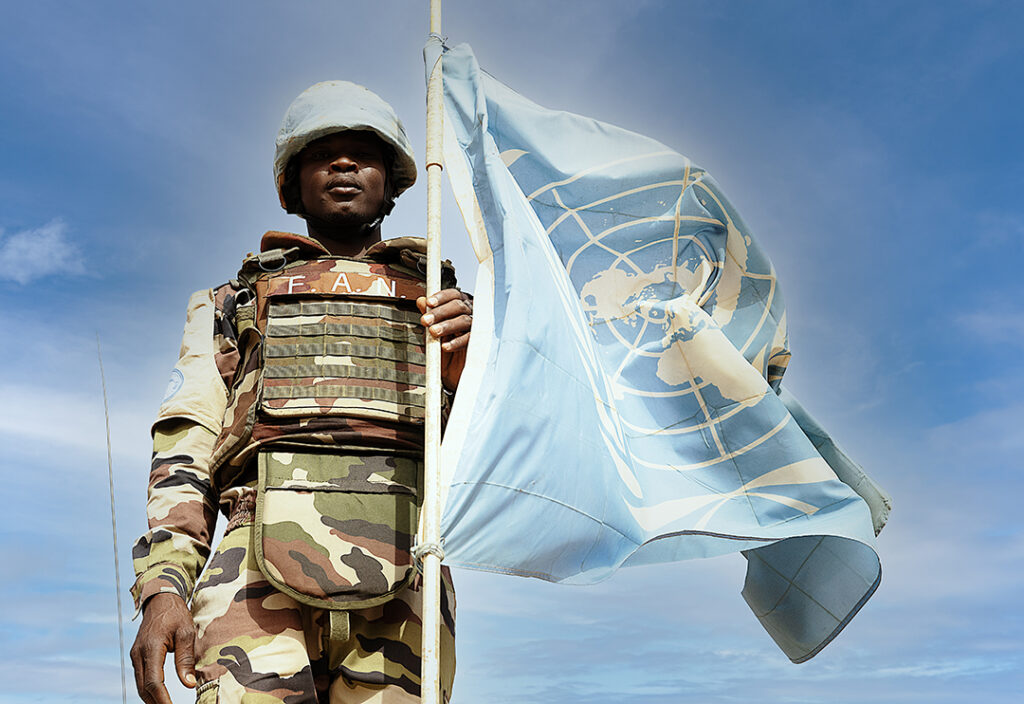ADF STAFF
A report analyzing the United Nations peacekeeping mission in Mali concludes that it was handicapped from the start by its narrow capabilities and the Malian government’s expectations.
Researchers produced the report after a June 13 workshop that analyzed the mission and the lessons learned from its 10-year deployment. The International Peace Institute, the Stimson Center and the Security Council Report organized the workshop.
The Malian government, the report concluded, “appeared to prioritize sovereignty and restoration of state authority above all else, including above sustaining the political transition or the peace process in the north.”
The United Nations Multidimensional Integrated Stabilization Mission in Mali (MINUSMA), had its roots in the 2012 Tuareg rebellion, when rebels fought for independence in the north. The next year, the U.N. authorized the mission to ensure a fair presidential election, stabilize population centers in the north, protect civilians from violence and promote human rights. The mission began with 6,000 troops and eventually doubled. It is regarded as one of the deadliest U.N. missions of all time, with 310 peacekeepers killed.
In June 2023, Mali’s foreign minister asked the U.N. to terminate the mission, saying it was a failure. Days later, the Security Council announced it would cease operations, transfer tasks and withdraw personnel by December 31, 2023.
June workshop findings include:
- Although the U.N. mandate was strongly worded, the mission did not sufficiently deliver on its priorities. This became a greater source of discord after coups d’état in 2020 and 2021 put military leaders in command of the government.
- The mission had no conventional enemy but was forced to deal with asymmetric violence fueled by terrorists and criminals. The mission lacked a counterterrorism mandate, which meant that “counterterrorism operations would have been beyond its capacity and gone against core peacekeeping tenets.” The report said civilians never understood these limits, which left Malians frustrated and opened the country to disinformation campaigns.
- The mission’s mandate expanded significantly over the years, but “with the changing political and security landscape,” the U.N. did not support the mission’s larger role. When the mandate was expanded to include the central region of the country, the U.N. failed to allocate additional resources.
- Malian authorities’ lack of cooperation undermined the mission’s ability to fulfill its mandate. Mali did not comply with parts of a status of forces agreement, limiting the ability to carry out joint patrols. “MINUSMA also faced restrictions on its freedom of movement, both by air and by ground, which impacted its ability to deliver on its protection of civilians mandate,” the report notes.
- Mali restricted the use of drones, which threatened the safety and security of U.N. personnel, particularly along supply routes. The mission was forced to use a disproportionate amount of its resources to protect its convoys, which left insufficient resources for protecting civilians.
- As MINUSMA stationed most of its peacekeepers in cities, armed groups expanded in rural areas, “creating protection gaps and compelling civilians to seek other forms of protection.” This led to the formation of self-defense militias, including some established along ethnic lines, which sometimes made the situation worse.

